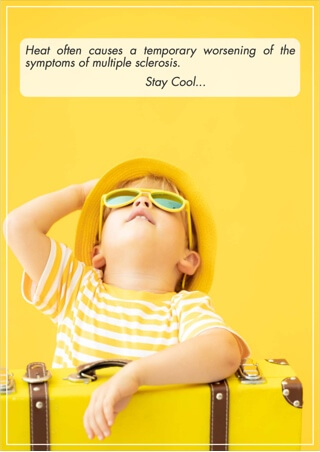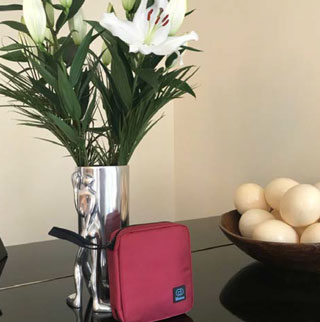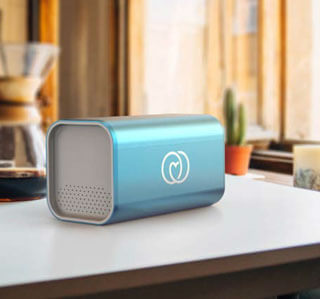
Travelling With Multiple Sclerosis

ABOUT THIS GUIDE
Multiple sclerosis (MS) is an autoimmune disease that affects the central nervous system. It causes lesions that cause motor, sensory and cognitive disturbances. At more or less long term, these disorders can progress to an irreversible disability. Current treatments can reduce exacerbations and improve quality of life for patients but are still insufficient in efficacy to fight against the disease’s progression.
However, having MS does not mean that you cannot take holidays or travel. Today, you can travel just about anywhere, anytime, with a bit of preparation. At the same time, know your limits and try to avoid lengthy and physically exhausting journeys. Ideally, make stops during your journey to recover from stress and tiredness.
This Guide to Traveling with Multiple Sclerosis was developed by Lifeina with a team of specialists and international medical consultants. We try to provide you with information that is factual and current. If you have any comments/ suggestions/questions about multiple sclerosis, please login to our Facebook page www.facebook.com/medactiv.com.au (don’t forget to like us) or visit us on www.lifeina.com.au.
ABOUT UWE DIEGEL
Uwe Diegel (born 1965 in New Zealand), is a specialist in various forms of medical diagnostics such as blood pressure, temperature, asthma and diabetes. He is the holder of several patents relating to temperature and blood pressure measurement. Until the age of 26 he was a concert pianist. Following an accident that partially restricted movement in his right arm, he started a new career in medical diagnostics.
Serial entrepreneur, he entered the world of medical diagnostics in 1992, quickly developing a particular interest in cardiovascular diagnostics. His intense scientific curiosity has led him not only to develop new technologies in this field, but also to interest himself to field of medical manufacturing, industrial design and problems faced by Chinese manufacturing concerns.
 In 2009, Uwe gets interested in connected health as a means of providing better patient management. He becomes involved in iHealth, a platform that takes all the signals of the body and translates them into a meaningful format using smartphones and tablets. Uwe serves as CEO of iHealthLabs Europe until 2016. He leaves iHealth in 2016 to launch Lifeina, a company dedicated to developing new solutions for the safe transport of medication.
In 2009, Uwe gets interested in connected health as a means of providing better patient management. He becomes involved in iHealth, a platform that takes all the signals of the body and translates them into a meaningful format using smartphones and tablets. Uwe serves as CEO of iHealthLabs Europe until 2016. He leaves iHealth in 2016 to launch Lifeina, a company dedicated to developing new solutions for the safe transport of medication.
Uwe lives in Paris, France, where he runs HealthWorks Global and does fundamental research in blood pressure diagnostics. He is today considered to be a foremost expert in the field of blood pressure management and in the manufacturing of medical diagnostics devices.
Uwe Diegel has been at the forefront of international changes in healthcare technology for the last 30 years. His drive and passion for innovative technology have driven major changes in perception about healthcare. He has driven the manufacturing of medical devices to new horizons by forcing new practices in manufacturing and innovation. An internationally recognised expert in the management of cardiovascular disease and diabetes, he is continuously looking for better solutions to improve outcomes for patients. He has for the last few years spearheaded the dissemination and acceptance of connected health as a tool for providing better solutions for patients.

THE BASICS
THE UHTHOFF PHENOMENON
For many people with multiple sclerosis, heat causes a temporary worsening of symptoms (the Uhthoff phenomenon). If you have MS, you should therefore avoid saunas, hot baths, or other heat sources, and make use of plenty of cooling solutions. There are now for example cooling scarves that you can soak in water that will cool you down by evaporation. So choose your destination based on your reaction to the heat.
However, it is important to note that even if the heat exacerbates the symptoms of MS, it has no effect on the disease itself. A holiday in a hot country or a hot summer can affect your quality of life, but will have no effect on the actual evolution of your disease. Heat and humidity do not further damage your nerve pathways and do not influence the prognosis of your illness. Moreover, this kind of symptom is usually temporary.
But in practice it is advisable for patients with MS to avoid prolonged physical effort, exposure to the sun, or taking a hot bath. If you feel tired, you need to rest and not to fight against the fatigue which usually disappears after a few moments of rest.
When traveling, if the weather is too hot, take a small lukewarm shower from time to time, try to keep the drapes closed so as not to raise the interior temperature, relax, sit and wait for it to rain, or for the temperature to fall...

BEFORE THE TRIP
YOUR TRAVEL AGENT
Tell your travel agent that you have multiple sclerosis and explain the special requirements that your trip might entails. In this way, a suitable route can be designed to better meet your needs. When booking, inform the company of any medical article (canes, walkers or wheelchairs) that you might take, and inform them if you need help for boarding, landing or during the flight.
DISCUSS YOUR TRIP WITH YOUR DOCTOR
Consult your doctor before planning your holiday. Discuss your itinerary with him and develop a plan for your medication, especially when traveling through different time zones. Ask your doctor what to do if you become ill while on holiday. You will perhaps need medical advice about the possible effects of this trip on your MS, or whether to take special precautions.
TALK TO YOUR PHARMACY
Ask for a list of your medications (including generic names and dosages) from your pharmacist. Bring a copy of this list with you at all times.
TRAVEL INSURANCE
Make sure you have comprehensive travel insurance to cover your trip and keep copies of your insurance documents with you in case of emergency. When traveling, the occurrence of an exacerbation of your multiple sclerosis symptoms does not always justify hospitalization or a medical repatriation. However, to be safe, take out a repatriation-insurance in the rare event of a severe relapse needing immediate support.
MS IN A FOREIGN LANGUAGE
Learn to say “I have multiple sclerosis” in the language or languages of the countries you visit in case you have a medical emergency or if you need to let people know that you suffer from this condition.
YOUR MEDICATION
Make sure you have enough medication to cover the entire duration of your trip. It also may be a good idea to double the amount of medication you need for your trip and put a set in your hand luggage and a spare set in the luggage of your travel companion (if possible). This way you will have a back-up if you happen to lose some of your medications on the trip or if your suitcase gets lost. Keep your medicines in a correctly labelled container (as issued by your pharmacist) and keep your medication at the right temperature (between 2-8° C). Lifeina has developed a range of solutions for the safe transport of your multiple sclerosis medications.
NEEDLE BOXES
In addition to your medication, you will need a secure box to throw away your used needles. Usually these boxes are available for free at your pharmacy. Talk to your pharmacy or your doctor about this.
VACCINATIONS
Be sure to get the necessary vaccinations at least four weeks before your departure to allow time to deal with possible side effects. International law makes certain vaccinations mandatory for different destinations. Even in less exotic areas, it is important that all your vaccinations be up to date, especially with regard to tetanus vaccination (always recommended, even when you do not travel or as a precaution when conducting recreational activities such as gardening).
Depending on the destination, some vaccines are mandatory. Many studies have analysed the link between multiple sclerosis and vaccinations. To date, these studies demonstrate that there is no increased risk after vaccination for the patient with MS, regardless of the vaccine.
PRESCRIPTIONS
Ask your doctor to give you a prescription in English because English is the most widely accepted international language.
TRAVEL CERTIFICATE
Download a travel certificate and have it filled by your doctor. This certificate says that you have MS and you should not be separated from your medicine, and that this medicine should be stored at a temperature between 2-8° C. You can download it for free on the MedActiv website here.

THE JOURNEY ITSELF...
(EHIC) EUROPEAN HEALTH INSURANCE CARD
If you’re traveling in Europe, this card will entitle you to free or inexpensive health care in most countries. The EHIC card is free and is available on the National Health Insurance website (https://assure.ameli.fr/).
ASSISTANCE
Always inform your airline or your travel agent when you book if you require assistance during the trip.
COPIES OF YOUR PRESCRIPTIONS
Make copies of your prescriptions and keep them in your hand luggage in case customs or airport security ask you about any medicines you are carrying.
YOUR MEDICATION
If possible, divide your medications and supplies in half and put one half in your hand luggage and the other half in the luggage of your travel companion. This way, even if you lose one of your bags, you will have emergency supplies. Most importantly, make sure you have some of your medications in your carry-on. Take supplies and additional medication in case of loss or theft. Keep your medication at the right temperature (between 2-8°C).
Generally, medication for MS can also be stored at room temperature (between 15 and 25° C) for a period not exceeding one week (check the instructions). However, it is important not to exceed the temperature of 25°C, because beyond this temperature they will lose potency relatively quickly. For this reason, MedActiv has also developed the EasyBag Classic, which maintains medications between 16 and 25° C for up to 4 days without electricity.
YOUR MEDICATION
- Inform the security personnel that you have MS and that you are carrying medical supplies
- Your medication must have a prescription label in your name
- All medications must bear the manufacturer’s label
Security scanners used during recording will not damage your medicine. However, if your luggage is in the X-rays machine for longer than normal, or if the luggage is X-rayed several times, your medication may lose some of its potency.
WHERE TO PUT YOUR MEDICATION ON THE PLANE
Generally, the luggage storage areas in planes are pressurized and maintained at a constant temperature of about 5°C. This is a standard for most airlines. It is not a problem for you to put your medicine in the luggage hold. However, if you make an unusual journey, you should know that the luggage area will probably be non-pressurized and will sometimes be at a sub-zero temperature that could freeze your medication.
TIPS FOR DIFFERENT TYPES OF TRIPS
TRAVELING BY PLANE
Be sure to give yourself some extra time before your flight because of the fact that you will be traveling with syringes and that your screening for security might take a bit longer than usual. Generally, it is recommended to never separate yourself from your medication and, if possible, to carry it in your hand luggage, because if your medication is in your main luggage and your suitcase is lost, it may ruin your vacation. The weight of the transport bag in which you carry your medicines is not usually included in the authorized limit for the hand luggage.
TRAVELING BY CAR
As for air travel, it is important to keep your medication in your hand luggage so that they’ll be easily accessible.
You might need a rental car, even if you have reduced mobility. Call the rental company ahead of time to see if they have cars capable of transporting your mobility aids (wheelchairs, walkers, etc). There are rental cars equipped with special equipment for people with disabilities, such as manual controls (for people who cannot use their legs to push the pedals). Most of these services are free, but you usually have to book them in advance. If the heat is exacerbating your symptoms, choose a vehicle with air conditioning. You may also consider getting extra road insurance during the rental period (if you do not already have one).
TRAVELING BY BOAT
Once you have chosen a cruise company, call to see if your needs can be taken care of, so that you can access public places and shore excursions. Whether it is using a wheelchair, needing air conditioning, or a cool place to keep your medicines, the staff on a cruise company will be happy to help you. However, it always helps to make arrangements in advance. Find out if it you need a note from your doctor or a medical clearance. Choose a new cruise ship, which will probably be more spacious and more accessible to people with disabilities.
Seasickness can ruin the most beautiful cruises. Before leaving, ask your doctor or pharmacist about getting medication for seasickness, and ask if you can safely use them with your other medicines.
HIKING
A vacation in the great outdoors is often the most fun but remember the cardinal rule: do not go camping or go hiking alone. Tell someone where you are going and when you expect to return so that you can be found in the case of an emergency.
DURING THE TRIP
Always keep a copy of your prescription and your medical certificate giving details of your treatment with you, so that no doubt can be issued on the need to travel with these drugs.

RELAX, WE’RE HERE TO HELP...

LifeinaBag medicaton transport bags are discrete and offer protection of 24 hours between 2 and 8°C.
TRANSPORT YOUR MEDICATIONS
MedActiv and Lifeina have developed a range of solutions to keep your MS medicines at the right temperature at all times. These solutions are divided in two major technologies, which are cooler bags and mini fridges.
EASYBAG
The EasyBag keeps medicines cool for 4 days without electricity. The EasyBag kits use gel crystals that cool down medication when in contact with water. To activate the EasyBag simply immerse it in water for 40 seconds. The crystals in the panels of the EasyBag turn into a gel that stays cool for three to five days (depending on the ambient temperature) based on an evaporation process that will keep your medication at a temperature between 16 and 25°C (up to an ambient temperature of 38 ° C). Generally, medications for MS can be kept for a week at a temperature between 16 and 25°C.
ICOOL
The iCool bags use a new generation of chemical ice packs that do not sweat and have a longer thawing point than traditional ice packs. The iCool bags can keep medication between 2 and 8°C for up to 36 hours, depending on the model chosen. They also include separate compartments for transporting your accessories. Available under both the MedActiv (iCool) and the Lifeina (LifeinaBag) brands, these bags are the perfect companion for longer trips.
ICOOL
The iCool bags use a new generation of chemical ice packs that do not sweat and have a longer thawing point than traditional ice packs. The iCool bags can keep medication between 2 and 8°C for up to 36 hours, depending on the model chosen. They also include separate compartments for transporting your accessories. Available under both the MedActiv (iCool) and the Lifeina (LifeinaBag) brands, these bags are the perfect companion for longer trips.
LIFEINABOX
LifeinaBox is the world’s smallest intelligent fridge for the safe transport of fragile medications. Connected to an application that monitors the temperature of your medication, and with a built-in 6-hour battery, LifeinaBox is truly the best possible example of Human Centered Design.
NIFTY LITTLE TRICKS
- Avoid sudden temperature changes
- Stay on the move, but be cool...
- Be active in the cooler times of the day and take breaks when it gets warmer
- Try to move as much as possible when it is cool
- Take regular cool showers
- If you have a fever, treat it as quickly as possible
- Avoid hot baths and saunas
- Check before you travel that your hotel room has air conditioning
- For environmental reasons, more and more hotels are using coded cards to open the doors of their rooms and these cards are also often used as a switch to turn on and off the electricity in the room. This means that when you leave your hotel room, you take your card with you and turn off all the electricity in your room (including the little bar fridge where you keep your medications cool). To work around this problem, just use any old plastic card (a gym membership card, business card, etc.) to switch on the power in your room. Leave it permanently in the room so that the electricity stays on.
If you need to freeze the ice packs of your travel bag before leaving the hotel, the refrigerators in the hotel rooms are generally not of a very good quality and will not completely freeze your ice packs. So instead of using the bar fridge in your room, go down to the hotel bar and ask the helpful staff to freeze them for you. After all, they always need ice in bars for making gin tonics and therefore have high quality freezers.
USEFUL SITES
European Health Insurance Card
Google translate
MedActiv (transport solutions for medication)
Lifeina (the world’s smallest fridge for transporting medication)


ABOUT LIFEINA !
Lifeina is an innovative startup that aims to be a global leader in the development of transport and storage solutions for sensitive medication. Our products are designed to give users the freedom to travel knowing that their medications are kept at exactly the right temperature.
The Lifeina solutions are specially designed to bring added value to the medications they are made for. Strategically located in Paris, we have the reputation of always anticipating the needs of our customers with an approach that is based on the total satisfaction of the end-user of the medication.
Our team of experts includes physicians, patients and engineers who are dedicated to finding better solutions for the transport and storage of sensitive medication.
EXCEEDING YOUR EXPECTATIONS FOR THE TRANSPORT AND STORAGE OF MEDICATIONS
For Uwe DIEGEL, creator of Lifeina, the company represents a personal investment. “In 2003, my brother almost died following an incident where his medication was accidentally frozen in a hotel. So I started this company because of reasons that are more of a personal nature than just business. Lifeina is for me the ultimate expression of innovation at the service of healthcare. If the Lifeina products are so popular, it is because they are designed by patients for patients and because we speak directly with users of the medications to really understand their needs. “
THE LIFEINA MISSION
Lifeina challenges benchmarks in the thermo- sensitive medication sector. We manufacture and market innovative solutions for the storage and distribution of thermo-sensitive medications.
THE LIFEINA VISION
A future where users of medication are not hampered by intrinsic limitations dictated by their health condition. A future where users are allowed the freedom to take responsibility for their health by using the correct tools for health management.
For more information, please contact:
Lifeina SAS
6 rue de Castellane 75008 PARIS, France
Tel. +33 (0)1 42 66 15 59 hello@lifeina.com www.lifeina.com
Lifeina Australia
contact@lifeina.com.au
www.lifeina.com.au
BON VOYAGE !
ABOUT MEDACTIV
MedActiv is a global leader in the development of transport and storage solutions for sensitive medication. Our products are designed to give users the freedom to travel knowing that their medication is kept at exactly the right temperature. As the chosen partner of major pharmaceutical companies worldwide, MedActiv is constantly pushing back the boundaries of this industry.
MedActiv North America www.medactiv.ca MedActiv Europe www.medactiv.com MedActiv South America www.medactiv.cl MedActiv Australia www.medactiv.com.au
© 2023 Medactiv Australia - All rights reserved.
Unauthorised duplication or publication of any materials from this Site is expressly prohibited.
Unauthorised duplication or publication of any materials from this Site is expressly prohibited.



